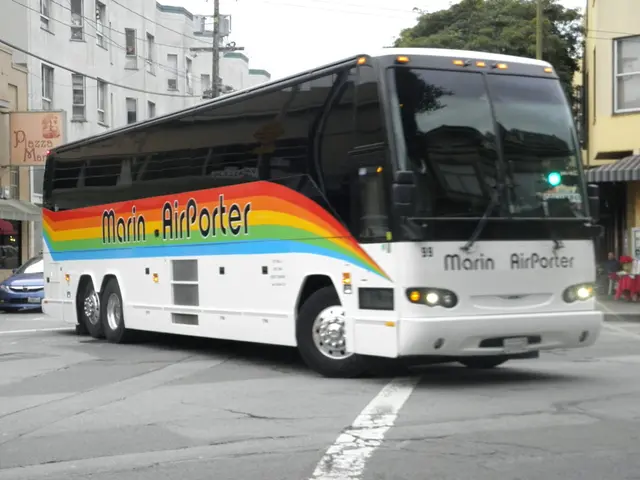Shift in Gambling Landscape in Finland: Upcoming Alterations
In a significant move, Finland's gambling market is set to undergo a major overhaul, with the planned end of Veikkaus' monopoly in 2027. The shift from a government-owned monopoly to a competitive licensing model will open the market to both domestic and foreign operators [1][2].
The reform, scheduled to take effect from January 2027, promises to introduce a licensing model and market liberalization. This means that from early 2028, only licensed gambling software will be permissible [1][2][3]. The aim is to channel bets towards regulated operators, reducing the estimated €800 million currently spent on unregulated platforms [1][2].
Enhanced consumer protection and responsible gambling are key focuses of the reform. Strict marketing and advertising rules, alongside improved monitoring, will be enforced to prevent and reduce gambling-related harm. Strengthened player protection measures are expected to safeguard consumers [3].
Veikkaus, the current state-owned operator, is preparing for the competitive market by investing in business development, new product offerings such as a new sportsbook, and talent acquisition. Despite facing a decline, the company views this reform as an opportunity and aims to maintain a strong presence [3][4].
The liberalized framework is expected to not only better regulate the gambling sector but also increase tax revenues collected from gambling activities in Finland [3]. Finnish companies like Finnplay, providing modular and compliant gaming platforms, view the opening market as a strategic opportunity to expand and support operators in compliance with the new regulations [2].
Veikkaus, which held approximately half of the total digital money gaming market in Finland in 2024, estimates that offshore gambling operators had a share of more than €550m in the same year [1][2]. However, the reform will see Veikkaus retain exclusivity over certain activities, such as lottery and scratch card tickets, and slots [1].
The reform of the gambling system is expected to improve taxes collected from gambling and address potential cases of gambling harm. Veikkaus attributes its decline in revenue to changes in the market, authentication checks for ticket-based games, changes in point-of-sale networks, and slower progress in official permit processes [1].
Regina Sippel, Veikkaus' CFO, has stated that the reform of the gambling system is a great opportunity for Veikkaus [4]. The reform is expected to transform Finland’s gambling industry from a monopoly system to a regulated, multi-operator market focused on consumer protection, increased competition, and better control over gambling-related harms [1][2][3][4].
Licensing opportunities for gambling operators will be available next year, marking a new era for Finland's gambling sector.
References:
[1] Yle News. (2021, March 12). Finland to open gambling market to foreign operators in 2027. Retrieved from https://www.yle.fi/uutiset/osasto/news/finland_to_open_gambling_market_to_foreign_operators_in_2027/13021568
[2] The Finnish Gambling Company Veikkaus. (2021). Retrieved from https://www.veikkaus.fi/en/
[3] The Local Finland. (2021, March 12). Finland to open gambling market to foreign operators in 2027. Retrieved from https://www.thelocal.fi/20210312/finland-to-open-gambling-market-to-foreign-operators-in-2027
[4] Veikkaus. (2021, March 12). Regina Sippel: Veikkaus is ready for the new gaming market. Retrieved from https://www.veikkaus.fi/en/news/regina-sippel-veikkaus-is-ready-for-the-new-gaming-market
The reform, scheduled for 2027, will introduce a licensing model to the casino-and-gambling market in Finland, causing a transition from Veikkaus' monopoly to a competitive environment that includes both domestic and foreign operators. From early 2028, only licensed gambling software, including casino-games and lotteries, will be permissible, with the aim of channeling bets towards regulated operators and reducing unregulated gambling activities.








